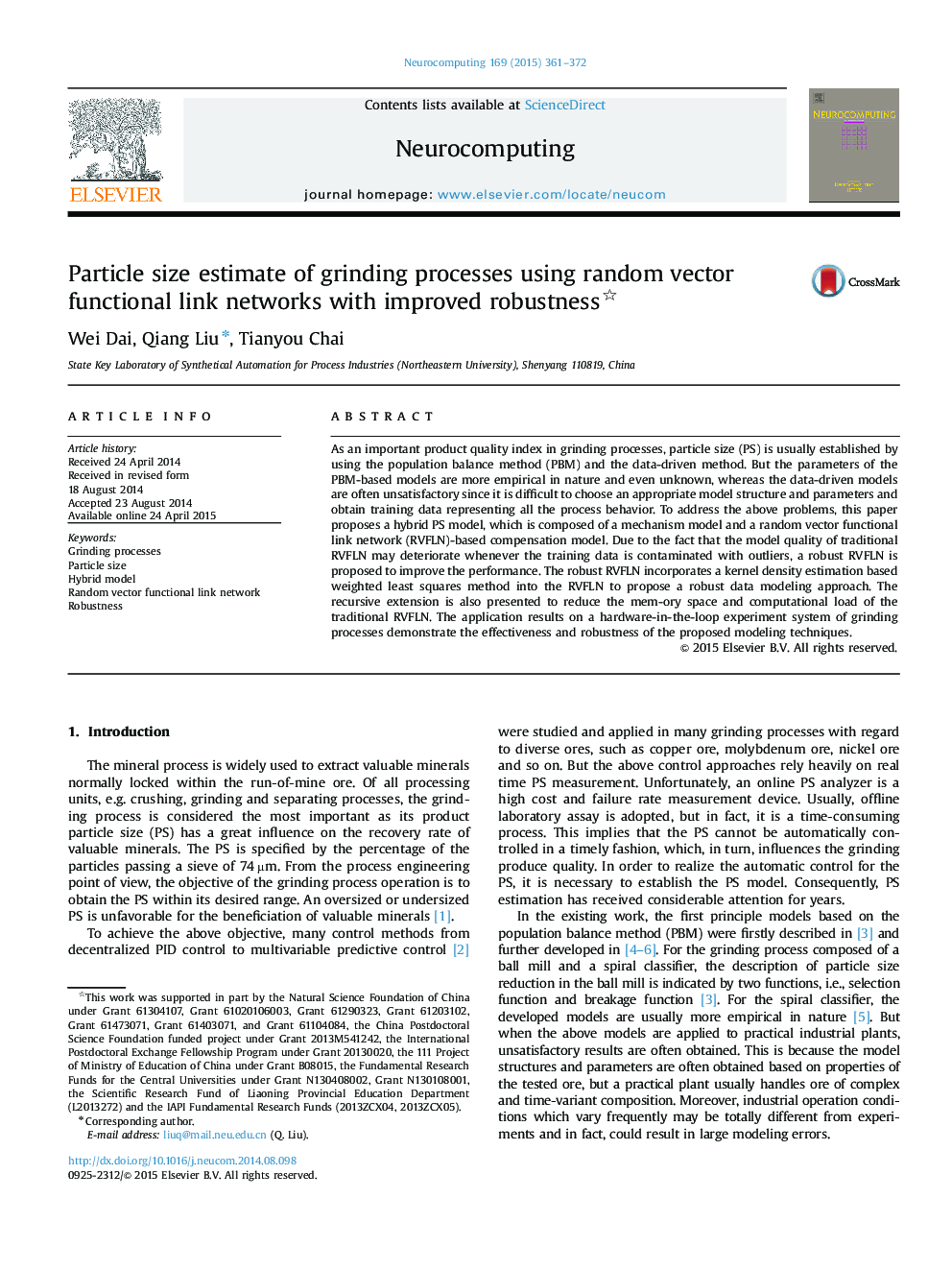| Article ID | Journal | Published Year | Pages | File Type |
|---|---|---|---|---|
| 6865627 | Neurocomputing | 2015 | 12 Pages |
Abstract
As an important product quality index in grinding processes, particle size (PS) is usually established by using the population balance method (PBM) and the data-driven method. But the parameters of the PBM-based models are more empirical in nature and even unknown, whereas the data-driven models are often unsatisfactory since it is difficult to choose an appropriate model structure and parameters and obtain training data representing all the process behavior. To address the above problems, this paper proposes a hybrid PS model, which is composed of a mechanism model and a random vector functional link network (RVFLN)-based compensation model. Due to the fact that the model quality of traditional RVFLN may deteriorate whenever the training data is contaminated with outliers, a robust RVFLN is proposed to improve the performance. The robust RVFLN incorporates a kernel density estimation based weighted least squares method into the RVFLN to propose a robust data modeling approach. The recursive extension is also presented to reduce the mem-ory space and computational load of the traditional RVFLN. The application results on a hardware-in-the-loop experiment system of grinding processes demonstrate the effectiveness and robustness of the proposed modeling techniques.
Related Topics
Physical Sciences and Engineering
Computer Science
Artificial Intelligence
Authors
Wei Dai, Qiang Liu, Tianyou Chai,
